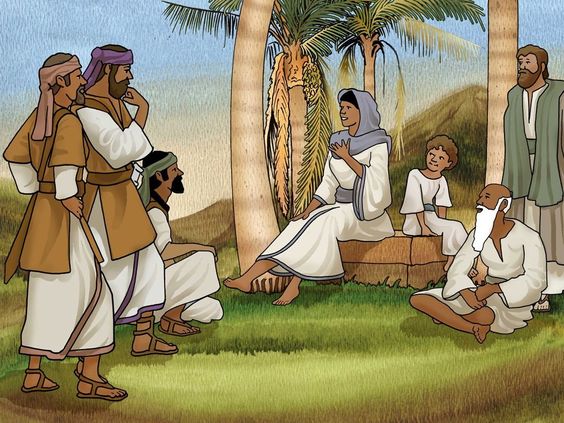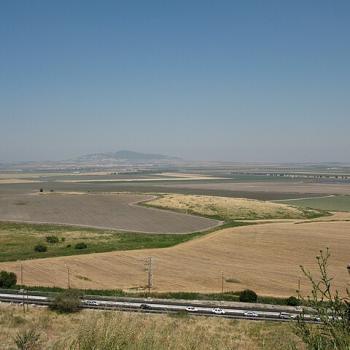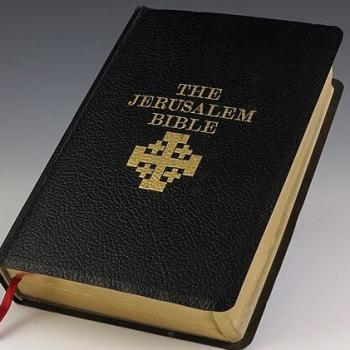
Who Was She?
Long before Judge Judy became famous on TV, a woman served as a judge for Israel. Deborah lived about 1150 BCE, a hundred years or so after the Hebrews entered the Promised Land of Canaan. At this point, no king had ruled over God’s people. Instead, individuals referred to as “judges” received authority from God to serve in a leadership position.
Little is known in the way of personal details about Deborah. According to Judges 4:4, Deborah was the wife of Lappidoth. The basis for the uncertainty is the same Hebrew word is used for “woman” and “wife.” So, Deborah could have been a woman from a place named Lappidoth or the wife of Lappidoth.
Unexpected Choice
Surprisingly, God called Deborah to become a judge. In ancient Israel, God chose leaders to administer justice and to free His people from oppression. In a male-dominated world, a female leader was uncommon. God usually appointed men for such powerful roles.
Israel’s circumstances at Deborah’s selection also gives pause. God called her to lead in troubled times requiring a strong leader. She assumed her position when the Canaanites oppressed the Israelites. Her tenure started with approximately twenty years of national hardship before the Canaanite war. Fortunately, her forty years of service post-war covered a time of peace.
What Did She Do As Judge?
Deborah, the only female judge the Bible mentions, was known for her wisdom. The Israelites came to her to obtain settlement of disputes and to receive guidance. Deborah conducted her business sitting underneath a palm tree between Bethel and Raman in the Ephraim hill country. Those seeking her assistance lined up waiting to speak with her. Deborah would pray over the matter asking God’s direction prior to announcing her decision.

Wearing Several Hats
In addition to being a judge, Deborah held several other roles. As a prophet, she heard God’s voice and revealed His word to others. Deborah is only one of five women the Old Testament identifies as a prophet in the Old Testament. Also a priestess, she led worship and preached.
Deborah’s talent extended to the arts as well. She was a poet and singer/songwriter. Judges 5:3-21 contains her work, the “Song of Deborah.” The Israelites’ win over their Canaanite oppressors inspired the writing of her song, a victory hymn, in which she acknowledged God’s role in the outcome. Biblical scholars believe Deborah’s words are one of the earliest examples of Hebrew poetry.
Military Leader
Perhaps the most thrilling aspect of Deborah’s service is her role in a military campaign against Sisera, a Canaanite general whose army boasted 900 chariots of iron. God spoke to Deborah and instructed her to have Barak, an Israelite warrior, take 10,000 troops to attack Sisera at Mount Tabor. Barak insisted she accompany him, which she did. Under the Israelite’s assault, Sisera fled the battlefield on foot and was ultimately killed in the tent where he’d taken refuge.
Role Model
Deborah is undoubtedly one of the most influential women in the Bible and a wonderful role model. She embodies several qualities to celebrate and emulate. First, she obeyed to God’s call on her life. Despite His direction to take on roles such as military leader and judge that women did not fill in her time, she moved forward in obedience to God.
Any description of Deborah must include courageous. She accompanied Barak to battle General Sisera, a formidable foe. She also took on non-traditional roles for women in her society.
As a judge, Deborah displayed wisdom. While she offered wise rulings and advice to those who came to her, Deborah knew her wisdom came from the Lord, and she sought His direction before ruling on anything.
Gratitude filled Deborah’s heart. She expressed her thankfulness in a song acknowledging God’s part in giving Israel a military victory over Sisera.
Deborah persevered, holding a leadership position for sixty years, twenty of which took place during a time of Israel’s oppression. Despite the stress and demands on her, she continued with her duties.

Celebrate Deborah
Deborah stands for the proposition excellence does not depend on one’s gender but on one’s character. Her amazing example of obedience to God, courageousness, gratefulness, wisdom, and perseverance remains as relevant today as during ancient times. Her story confirms celebrating biblical character judge Deborah for Women’s History Month makes a great choice.


















